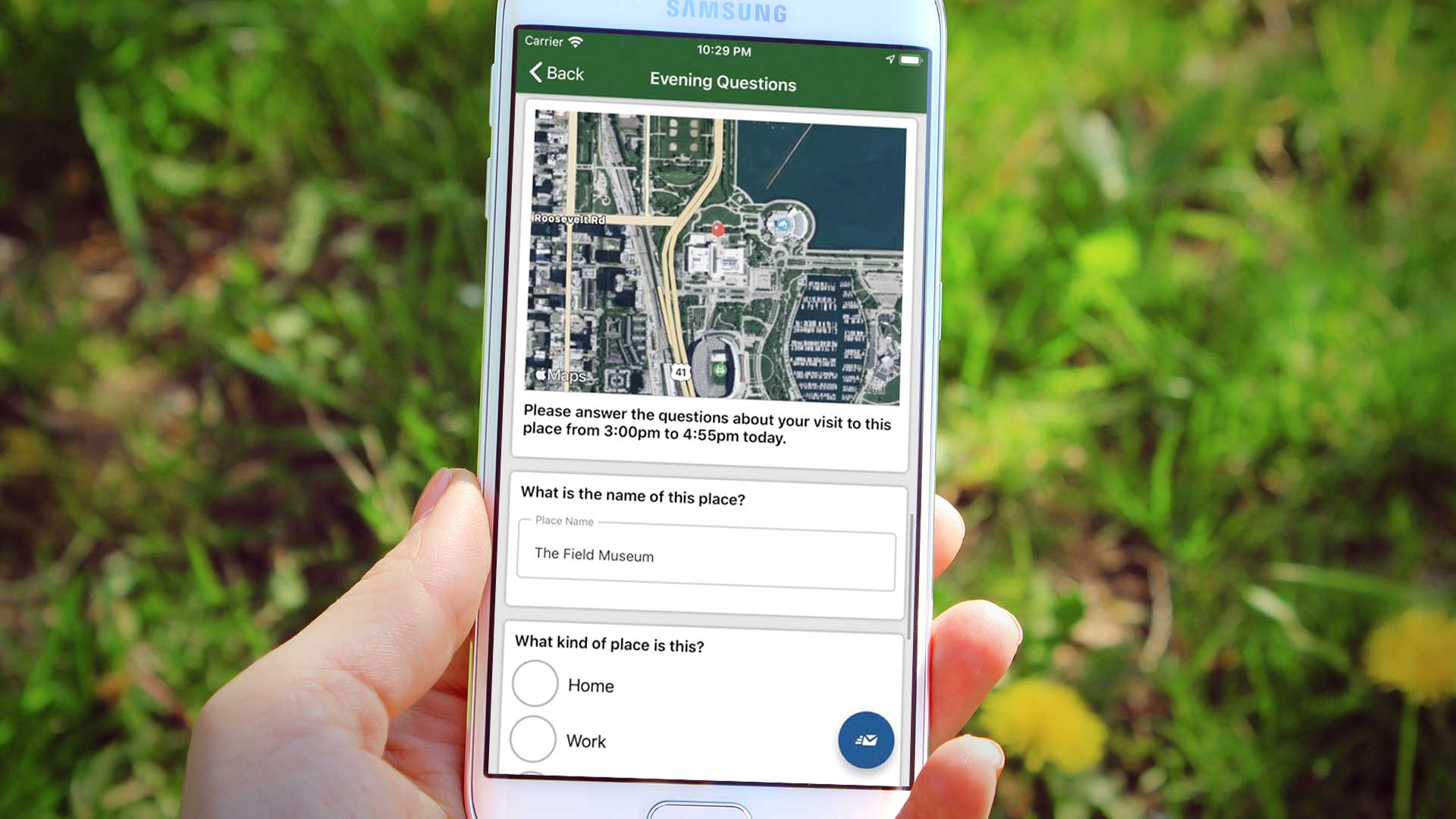LifeSense

Developed for Northwestern University's Center for Behavioral Intervention Technologies (CBITS), LifeSense built upon CBITs’ existing work in mobile phone passive sensing research through a privacy-first approach. It was funded by the NIMH under an R01 grant (R01-MH111610-04) from 2017 through 2021. BRIC co-founder Chris J. Karr (working as Audacious Software) created the mobile app, cloud server components, and supporting infrastructure.
LifeSense analyzed sensitive participant data (text messages, call logs, app usage) directly on devices, transmitting only aggregated metrics and extracted features (e.g., word counts, sentiment scores) to researchers. This on-device processing preserved privacy while enabling novel mental health research.
Passive Sensing
The bulk of the data collected consisted of readings from hardware sensors such as accelerometers, light intensity sensors, and the integrated GPS to build a comprehensive picture of participants' daily environments and activities.
The system was built using the Passive Data Kit Android library with cloud data collection via the Passive Data Kit Django server.
Dynamic survey system
The app featured QuestionKit, a context-aware survey engine that generated personalized questions based on participants' daily activities. For example, it prompted users to categorize social interactions from phone calls and used location clustering (DBSCAN) to ask targeted questions about places where participants spent significant time. This approach captured real-time reflections on observed behavior rather than relying solely on retrospective recall.
Related Publications
Stamatis et al. (2024). Differential temporal utility of passively sensed smartphone features for depression and anxiety symptom prediction: a longitudinal cohort study. npj Mental Health Research, 3, 1–8
Get in Touch
Want to learn more about LifeSense or discuss how we can help with your research or partner with your organization?